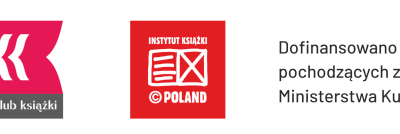29 marca 2025 r. ryńska młodzież spotkała się podyskutować na temat książki autorstwa duńskiego redaktora Nielsa Lunde o historii klocków LEGO, pt. „Lego. Jak pokonać kryzys, zawojować świat i zbudować potęgę z klocków”. Książka ta jest reportażem, który w bardzo drobiazgowy sposób opisuje losy spółki zarządzającej marką LEGO. Daje obraz jej upadków, które były tak spektakularne, że aż zachwiały duńską gospodarką, aż po wielomiliardowe obroty. Zdaniem klubowiczów to książka, która w gruncie rzeczy opowiada bardziej o stosunkach między ludźmi i podejściu do sprzedaży, która uwzględnia charakter odbiorcy jako element marketingu. Zapowiedzi były zachęcające, jednak książka nie jest uniwersalną lekturą. Jest napisana przeciętnie porywającym językiem, jest także bardzo branżowa co zawęża jej docelowe grono odbiorców. Według opinii młodzieży, bardzo przeciętny reportaż.


